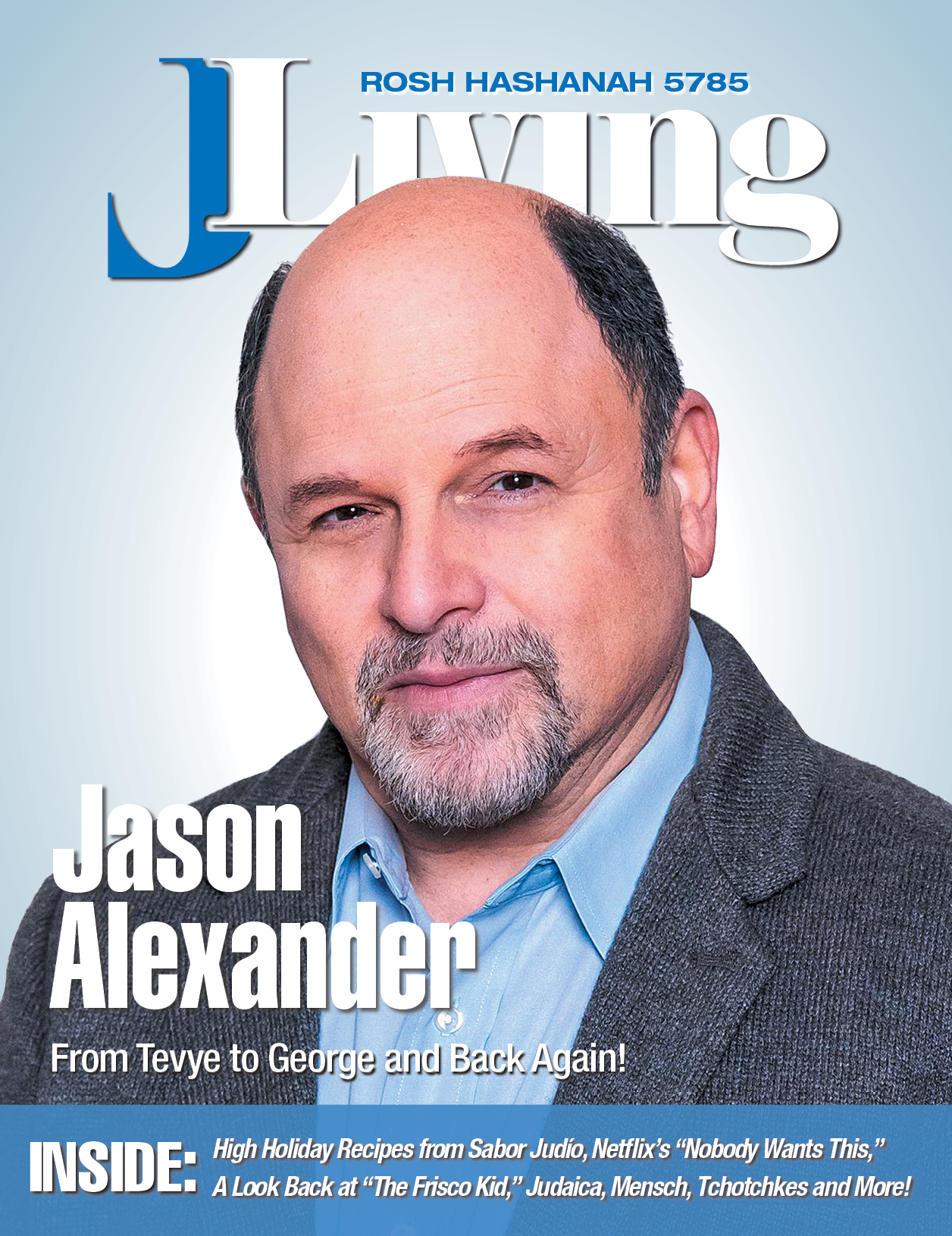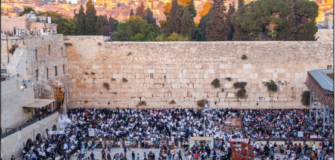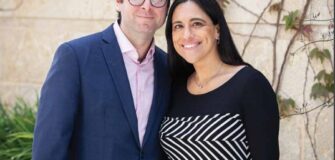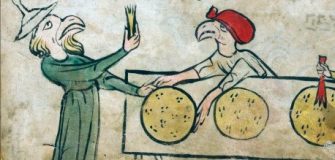Fighting Food Deserts


“What’s it like to be food insecure?” I asked Chance Parker, a writer and post-production PA, who has worked in everything from hair salons and Uber Eats as she bounces from job to job in the volatile entertainment industry.
“You feel out of control. You literally feel like you don’t know how you’re going to survive. How you’re going to make it to the next day. You’re counting your food. You’re counting what you have available to you, and you’re just trying to figure out how you can have money to even eat. I remember when I first moved to Los Angeles, I was working a lot, but I didn’t have a lot of money. And one time I went two days without food. I didn’t have anything to eat. And I just kind of resigned. I would steal my roommates’ yogurts. Sometimes you have a little bit of money and you go grocery shopping at the dollar store. Because that is all that you can afford. I have $5, so I can get five things that’ll last me five days.”
Unfortunately, Parker isn’t the only person in Los Angeles with these experiences. In April, Henley & Partners ranked Los Angeles as the 6th wealthiest city in the world. Yet, according to USC’s Dornsife Public Exchange, 1 in 4 Angelenos faced food insecurity in 2022. And to compound the systemic struggles for the working class, 10 out of 18 food retail stores in South LA, the majority of Black and Brown neighborhoods, do not sell fresh fruits or vegetables.
Parker, who has lived in various parts of Los Angeles, including South LA, believes that these food deserts are by design, “It’s so clear where the lines in these neighborhoods are drawn. And what’s available in certain areas is clearly not available in a lot of the others.”
This is where the emergence of a unique Black and Jewish collaboration comes into power. Partnership for Growth Los Angeles, led by Pastor Eddie Anderson (CEO) of McCarty Memorial Church and Rabbi Joel Simonds (President) of Jewish Center for Justice, is breaking ground on their latest initiative: Freedom Farms. Backed by a 7 million dollar state grant secured by U.S. Rep. Sydney Kamlager-Dove, Freedom Farms will address food instability and economic inequality through urban farming.

Pastor Eddie and Rabbi Joel, longtime friends and collaborators in the social justice movement, both echoed the power of their minority communities to come together to meet dire circumstances.
Pastor Eddie specifically noted the shared narratives around the Black and Jewish experience, “One could argue that at Passover, when people remember being freed from Egypt, where you eat unleavened bread, shake the leaf, and have the bones, that is a story of food insecurity. For Black people in America, the Exodus narrative is essential to how we break the chains.”
Rabbi Joel elucidated their common vision of deepening the connection between the communities, “We want this to be in every urban setting across the country five years from now, in which it’s not just urban farms, but it’s partnerships. It’s the Black and the Jewish community not just telling the story of [Reverend] King and [Rabbi] Heschel and not just doing pulpit exchanges on MLK Day–not to knock any of that. But if we have the capacity to do more, and we’re not, then we’re really not seeing our potential.”
In order to achieve their goals, Freedom Farms will be designed by Brendon Wilson, owner of Angel City Urban Farms, which hires formerly incarcerated people and teaches them how to garden.
“Freedom Farms is meant to grow food and get it out to people,” Wilson said as he walked me through Good Earth Community Garden in West Adams, “People live in places where if you don’t have a car and you need something in your tummy right now, the only options are to go to the corner grocery store, which doesn’t sell anything that is really wholesome. That has to be fixed. But then all of the habits also need to be fixed, people need to be introduced to the idea of what is a wholesome meal. And demystify just the simple act of cooking or using fresh food, because there’s a lot of backwardnesses that comes from not being able to have access to good food, which leads to people just making terrible choices.”

However, there are inherent obstacles to growing food in an urban setting as opposed to large swaths of land in rural neighborhoods. The major problem Wilson highlighted is the land itself. That is why the initiative will begin with urban leasing. From there, Pastor Eddie explained the following steps:
Master farmers will work with the community group, the church, the people who own the land. Then we will bring in a team of folks who are from the community around you, who work on that farm, as well as hiring formerly incarcerated atrisk youth and seniors to work on the farms. The food, once produced, goes in four channels. One is local restaurants: farm to table. I call that the bespoke model because you’re growing food for those kinds of restaurants. They need specific things and you want to make sure you can grow it for them at that rate. The other will be farmers’ markets, grocery stores, and bodegas. Every Freedom Farm will be a part of a crop swap. So that means a percentage of the food that is grown will go to the community for free.
The term “Farm to Table” is often associated with upper-class neighborhoods, Rabbi Joel commented. He believes that in creating a new micro-economy, their joint organization will facilitate a “reimagining” of what it means to eat farm to table and that it will no longer just be a concept for the wealthiest of communities. Therefore, facilitating urban farms will not only bring healthier options to these communities but will also help close the gap in how far a community member has to go to purchase fresh produce.
In the part of South L.A. Parker used to live in, there were only two grocery stores she could venture to, “They weren’t close to where my roommate and I lived so we had to travel. I didn’t have a car, so I would have to get a backpack and load it up with food and take that on the bus. Or pay for a taxi. Which is expensive.”
While urban farming is emerging as a new industry across the nation, it is important to note Black farming is nothing new. Jasmine Ratliff, Co-Executive Director of the National Black Food and Justice Alliance (NBFJA) was quoted in Food Tank’s article about Black-led Food Co-Ops, “We think back into the 1920s when there were nearly 1 million Black farmers in the United States, and now we’re less than one percent of farmers.”

I asked Pastor Eddie to describe how Black America went from stewards of agriculture in the early 20th century to being locked out of the farms and markets of the 21st century. His breadth of African-American history invariably touched on his own familial history:
After the Emancipation Proclamation, Black people, my ancestors, were local sharecroppers. So they knew very much how to work the land. My particular lineage of folks come from the Deep South, Georgia, the coastal plains. And so they’re what you would call Geechee Gullah folks. They were rice farmers, and they did task slavery. And so they lived off the land. I bring this up because my grandfather and my great-grandfather both had farms, they both owned land, both sides of the family. They owned acres and acres of land. So when the GI Bill came up in the 40s, after the World War, and they started doing farmers subsidies, they basically did that for white farmers and not so much for Black farmers. And then the land that people lived on and owned was also being taken from them.
And so we saw food become weaponized in the Black community. The people got impoverished and although they worked the land, they weren’t able to sell their food at scale at market rate. And so cooperatives were the way in which we were able to aggregate and pool the food from the various small farms around and hope that it would make it to the local corner store, the local market, or crop swap.
As a means to achieving the goal of a vast network of Freedom Farms across Los Angeles, Rabbi Joel is adamant that there must be more to the Black and Jewish partnership than there has been in the past.
“We can’t just be putting together coalitions,” he said in an animated conversation over Zoom, “We have to be putting together organizations in which we [combine] our bank accounts. We are legally putting together our organizations so that we have this binding.”
Perhaps a Freudian slip since Rosh Hashanah is around the corner, but it doesn’t seem to be a coincidence that Rabbi Joel used binding in reference to the commitment of this partnership. Traditionally read on the second day of the High Holy Day, the Binding of Isaac is not merely a story about blind loyalty, but a story against human sacrifice. In the contemporary sense, when 1 in 4 Angelenos are food insecure, that is a type of sacrifice that can no longer be accepted.
For people like Chance Parker, who experience an inability to purchase food (or good food), the change can’t happen soon enough.
“Overall, I look forward to a time when I’m not stressed out about where I’m going to secure my next meal,” she said, “I look forward to a time in my life when I’m not having to think about where I’m even going to get the funds to secure my next meal.”
For more information visit partnershipforgrowthla.org

























